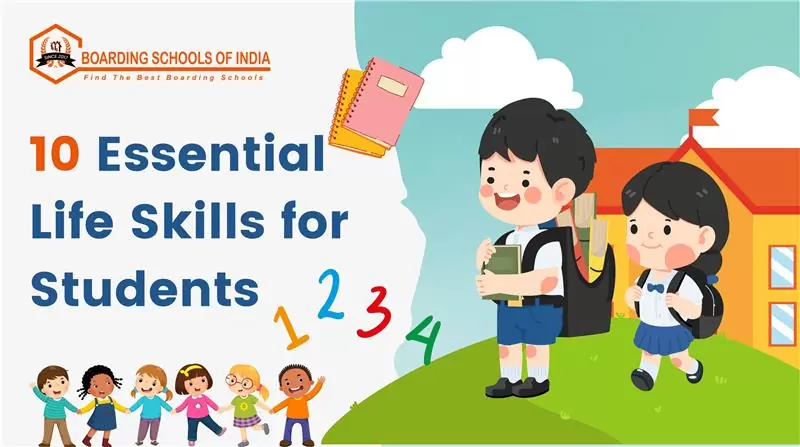Life skills for students are as crucial as the subjects they study in school. While academic achievements often take centre stage, the true measure of success lies in a student’s ability to apply knowledge in real-world scenarios. These essential skills go beyond textbooks and classrooms, helping young people navigate challenges, make informed decisions, and foster personal growth. Whether it’s managing time effectively, communicating confidently, or solving problems creatively, life skills equip students with the practical tools needed to succeed in every aspect of life.
In the long run, your life is determined by the choices you make and the skills you develop to navigate challenges.
In an increasingly competitive and complex world, mastering life skills is the foundation for building a fulfilling career, nurturing meaningful relationships, and leading a balanced life.
This blog will highlight 10 essential life skills every student should master to thrive academically, socially, and personally.
Table of Contents
- List of Top 10 Essential Life Skills for Students
- 1. Time Management Skills
- 2. Effective Communication Skills
- 3. Critical Thinking and Problem-Solving Skills
- 4. Emotional Intelligence Skills
- 5. Financial Literacy Skills
- 6. Adaptability and Flexibility Skills
- 7. Collaboration and Teamwork Skills
- 8. Self-Motivation and Goal Setting Skills
- 9. Stress Management Skills
- 10. Digital Literacy Skills
- Conclusion: The Lasting Importance of Life Skills for Students
- Words From Boarding Schools of India
- FAQs Related to Life Skills for Students
List of Top 10 Essential Life Skills for Students
1. Time Management Skills
2. Effective Communication Skills
3. Critical Thinking and Problem-Solving Skills
4. Emotional Intelligence Skills
5. Financial Literacy Skills
6. Adaptability and Flexibility Skills
7. Collaboration and Teamwork Skills
8. Self-Motivation and Goal Setting Skills
9. Stress Management Skills
10. Digital Literacy Skills
1. Time Management Skills
Time management is the cornerstone of success for students. With a multitude of assignments, extracurricular activities, and personal responsibilities, managing time efficiently can make a world of difference. Students who excel in time management are better equipped to meet deadlines, avoid last-minute stress, and maintain a balance between their studies and social life.

Tips for Improving Time Management:
- Create a daily schedule: Break tasks down into manageable chunks and allocate time for each.
- Set priorities: Tackle the most important tasks first.
- Use productivity tools: Apps like Trello, Todoist, or Google Calendar can help manage time effectively.
2. Effective Communication Skills
Good communication is an essential skill that aids in expressing thoughts clearly, building relationships, and resolving conflicts. It extends beyond speaking; active listening, non-verbal cues, and the ability to articulate ideas through writing are all integral parts of communication.
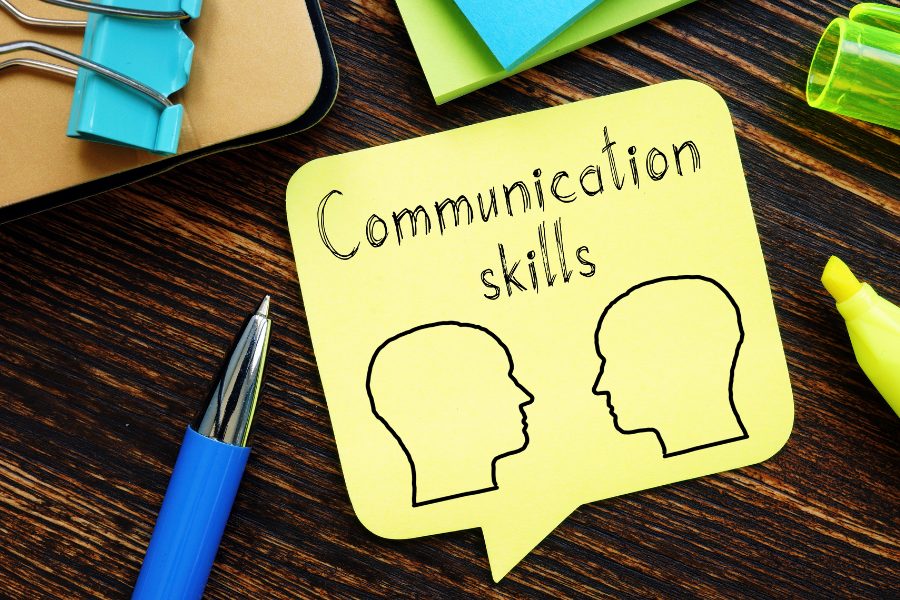
Benefits of Effective Communication:
- Helps in presenting ideas confidently in class discussions.
- Builds better relationships with peers, teachers, and future employers.
- Enhances problem-solving abilities by facilitating clear and constructive dialogue.
Ways to Improve Communication Skills:
- Engage in public speaking activities: Join clubs like debate or toastmasters to practice speaking in front of an audience.
- Work on listening: Practice active listening by summarizing what someone has said before responding.
- Develop writing skills: Focus on improving grammar, style, and clarity in written assignments.
3. Critical Thinking and Problem-Solving Skills
Critical thinking is the ability to analyze information objectively and make reasoned judgments. Problem-solving complements this skill by providing the practical approach to overcoming challenges. In a world that is becoming increasingly complex, students need these skills to navigate through academic hurdles, societal expectations, and future careers.
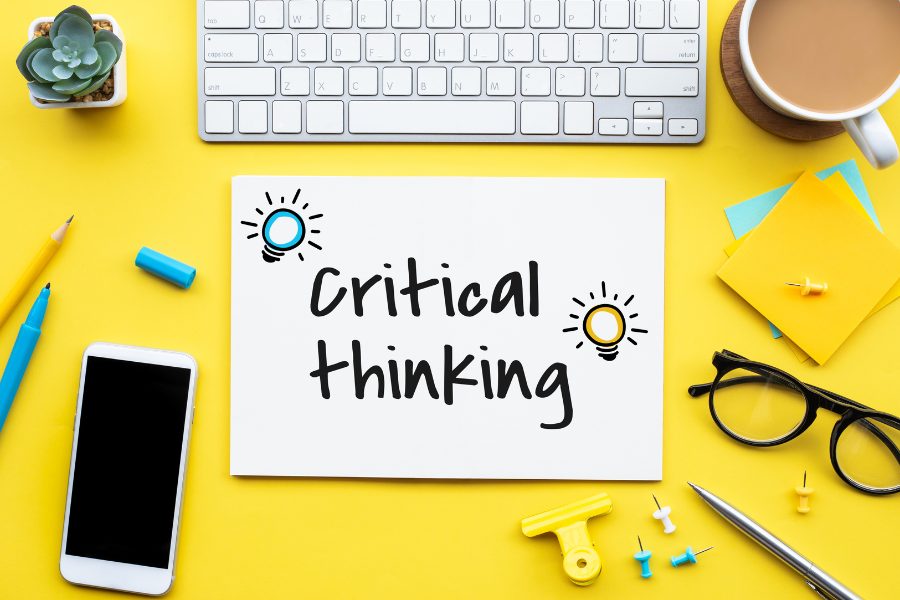
Why Critical Thinking Matters:
- Encourages independent thinking and helps students become better decision-makers.
- Helps in analyzing facts rather than accepting them at face value.
- Enhances creativity by fostering out-of-the-box solutions to problems.
Steps to Boost Critical Thinking:
- Ask questions: Always dig deeper into the ‘why’ and ‘how’ of issues.
- Engage in discussions: Open dialogue with peers on various subjects helps expand perspectives.
- Practice reflection: After solving a problem, reflect on what worked and what didn’t.
Explore More: How to Strengthen Your Bond with Your Boarding School Child
4. Emotional Intelligence Skills
Emotional intelligence (EQ) refers to the ability to understand, manage, and regulate your emotions while also recognizing and influencing the emotions of others. High EQ is linked to better interpersonal relationships, improved mental health, and effective leadership qualities.

Components of Emotional Intelligence:
- Self-awareness: Understanding your emotions and how they affect your behavior.
- Self-regulation: Managing your emotions, especially in stressful situations.
- Empathy: Understanding and considering others’ feelings.
How to Cultivate Emotional Intelligence:
- Practice mindfulness: Engage in mindfulness activities like meditation to develop greater self-awareness.
- Learn conflict resolution: Practice resolving conflicts through empathy and open communication.
- Build emotional resilience: Develop the ability to stay calm and composed in stressful situations.
5. Financial Literacy Skills
Financial literacy is the ability to understand and manage finances effectively. In a world where students often take on loans, pay for tuition, and handle personal expenses, being financially literate can prevent future debt and stress.

Key Financial Skills for Students:
- Budgeting: Learn how to create and stick to a budget.
- Saving: Understand the importance of saving money and building an emergency fund.
- Investing basics: Get familiar with basic investment options such as savings accounts, stocks, and mutual funds.
Steps to Improve Financial Literacy:
- Start budgeting: Use apps like Mint or You Need a Budget (YNAB) to track income and expenses.
- Read financial blogs: Follow financial experts to learn more about saving, investing, and money management.
- Seek guidance: Attend workshops or classes on financial planning.
Want more tips and resources to support your journey?
Visit Boarding Schools of India for expert advice, boarding school recommendations, and ways to make your bond with your child even stronger.
6. Adaptability and Flexibility Skills
The ability to adapt to changing circumstances is crucial in a fast-paced, dynamic world. Whether it’s adjusting to new academic challenges, navigating different learning environments, or managing personal changes, adaptability is key to long-term success.
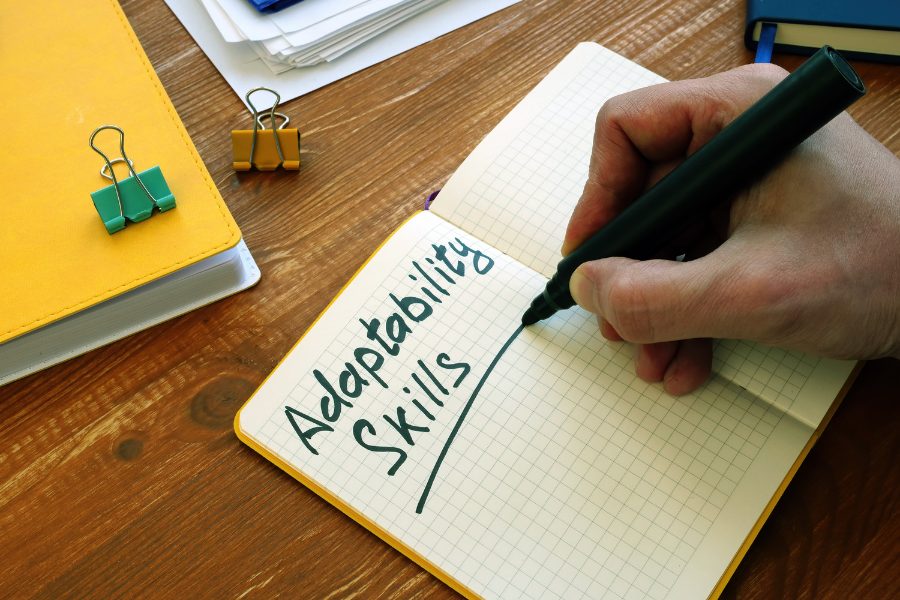
Why Adaptability Matters:
- It allows students to stay calm and effective in the face of uncertainty.
- Enhances problem-solving by encouraging open-mindedness.
- It is a sought-after skill in the workplace, where change is often the only constant.
How to Build Adaptability:
- Embrace change: See change as an opportunity to learn rather than a setback.
- Stay curious: Continuously seek new knowledge and experiences.
- Develop resilience: Cultivate mental strength by facing challenges head-on.
Explore More: Top 43 Best Motivational Movies for Students
7. Collaboration and Teamwork Skills
Collaboration is an indispensable life skill, especially in academic and professional environments. Students frequently need to work in groups, whether it’s for projects, sports, or extracurricular activities. Knowing how to work well with others improves productivity and fosters a sense of community.

Benefits of Teamwork:
- Encourages idea-sharing and collective problem-solving.
- Teaches patience, cooperation, and conflict resolution.
- Prepares students for future workplace dynamics.
Ways to Improve Teamwork Skills:
- Join group activities: Participate in group projects, clubs, or team sports.
- Practice active listening: Pay attention to the contributions of others in a group setting.
- Develop leadership skills: Take initiative and offer to lead projects when appropriate.
8. Self-Motivation and Goal Setting Skills
Self-motivation is the driving force behind a student’s ability to set goals and work towards them consistently. Without motivation, it’s easy to lose focus and give up when challenges arise. Setting realistic goals and staying committed to achieving them is a crucial life skill for success in both academic and personal life.

Importance of Self-Motivation:
- Helps in overcoming procrastination.
- Increases resilience when faced with setbacks.
- Encourages a growth mindset, where challenges are seen as opportunities to improve.
Explore More: 37 Best Science Project Ideas for Students
How to Cultivate Self-Motivation:
- Set SMART goals: Goals should be Specific, Measurable, Achievable, Relevant, and Time-bound.
- Reward yourself: Celebrate small victories to stay motivated.
- Visualize success: Picture your end goal and remind yourself why you’re working towards it.
9. Stress Management Skills
Academic pressure, personal challenges, and the fast pace of life can lead to overwhelming stress. Learning how to manage stress effectively can greatly improve a student’s mental health and overall productivity.
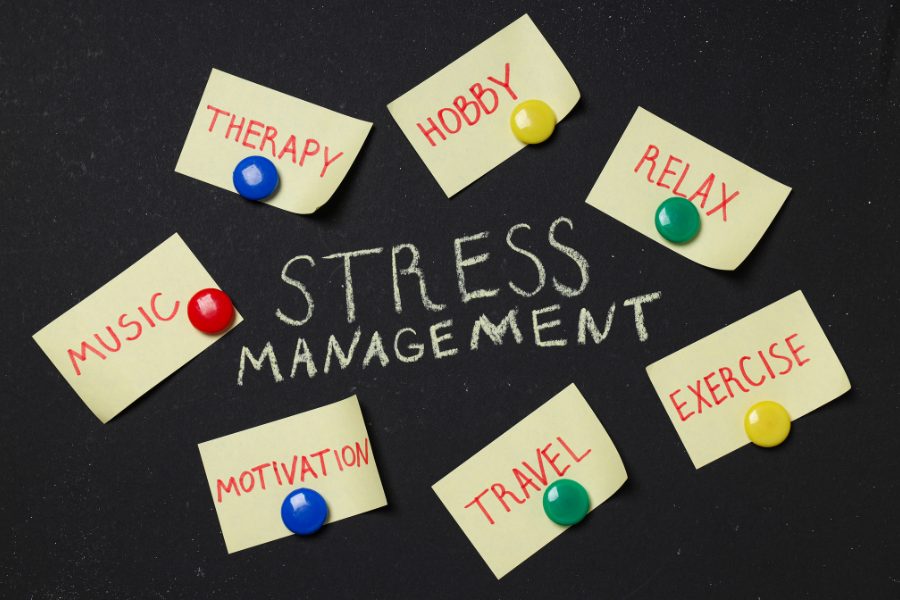
Techniques for Managing Stress:
- Exercise regularly: Physical activity helps reduce stress and boosts mood.
- Practice relaxation techniques: Techniques such as deep breathing, meditation, or yoga can help calm the mind.
- Take breaks: Regular breaks during study sessions can prevent burnout.
Benefits of Stress Management:
- Improves focus and concentration.
- Reduces anxiety and prevents chronic stress.
- Leads to better academic performance and well-being.
Explore More: How Boarding Schools Prepare Students for Success in College
10. Digital Literacy Skills
In the digital age, being tech-savvy is no longer optional—it’s essential. Digital literacy goes beyond knowing how to use gadgets; it’s about understanding how to navigate online resources, discern credible information, and stay safe in the digital world.
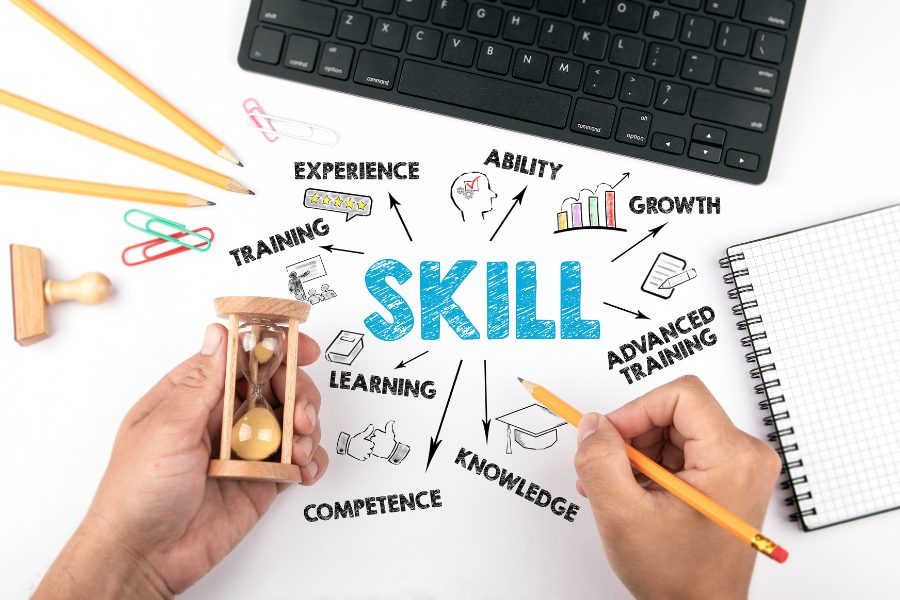
Why Digital Literacy is Essential:
- Students rely heavily on technology for research, communication, and collaboration.
- Being digitally literate is a prerequisite for many careers.
- It promotes responsible use of technology, preventing issues like cyberbullying or digital addiction.
Ways to Improve Digital Literacy:
- Learn basic coding: Understand the foundations of programming with tools like Codecademy.
- Stay informed: Keep up with trends in technology and digital ethics.
- Practice safe browsing: Be mindful of privacy and security while using the internet.
Conclusion: The Lasting Importance of Life Skills for Students
In today’s world, academic knowledge alone is not enough for students to thrive. Mastering essential life skills, from time management to emotional intelligence, helps students become well-rounded individuals capable of handling the complexities of life. As they build these skills, students not only prepare for successful careers but also for a fulfilling and balanced life. Encouraging students to focus on these 10 key areas will equip them with the tools they need to excel both in and out of the classroom.
By integrating these life skills into their daily routines, students can become proactive, adaptive, and resilient—traits that are indispensable in an ever-evolving world.
Words From Boarding Schools of India
For students looking to enhance their life skills in an environment that fosters both academic and personal growth, boarding schools can provide an excellent foundation. Boarding Schools of India offers free school guidance and counselling to help families find the right fit for their child’s educational journey. To explore options and receive personalized advice, visit Boarding Schools of India.
FAQs Related to Life Skills for Students
Why are life skills important for students?
Life skills are crucial for students as they prepare for personal and professional challenges. These skills improve academic performance, boost confidence, foster independence, and help students transition smoothly into adulthood and the workforce.
How can students practice self-care while managing academic pressures?
Students can practice self-care by maintaining a healthy routine, getting enough sleep, exercising, eating nutritious food, setting realistic goals, and taking time for relaxation and hobbies. Proper self-care helps manage stress and improves focus and productivity.
Related Posts
Boarding Schools and Social Skill Development
Winter Health Tips for Boarding School Students
Read More: Boarding Schools Blogs







